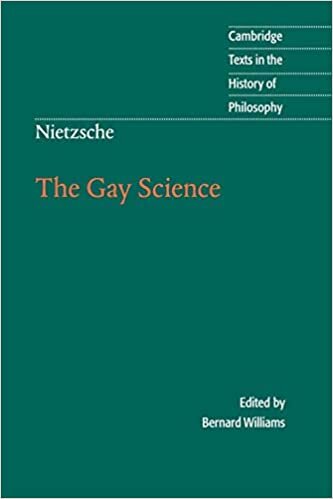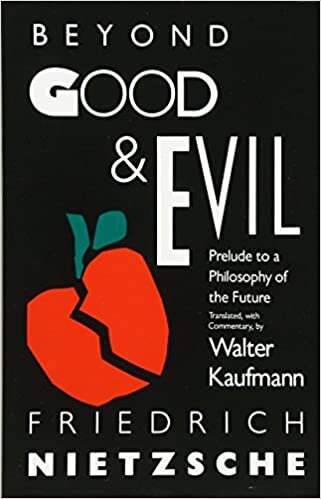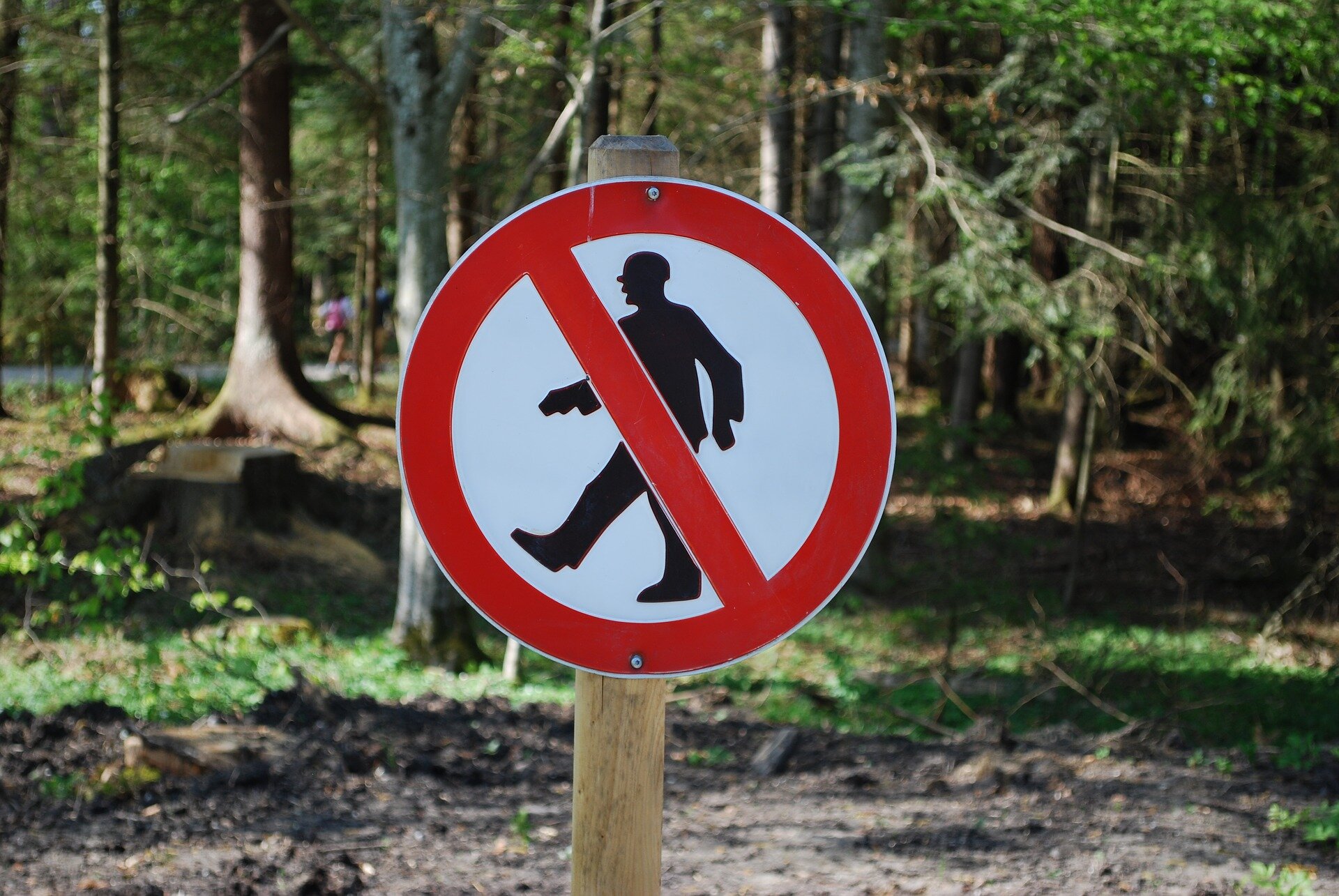Blogging Nietzsche—Nietzsche's Poetry: "The Bound Man"
Occasionally Nietzsche’s short poems take the form of a miniature dialogue. Such was the case in his aptly-named short poem “Dialogue.” And it’s the case again in “The Bound Man” (Nietzsche, The Gay Science, ‘Joke, Cunning, and Revenge’: Prelude in German Rhymes, No. 32):
32. The Bound Man
A.
He stands and hears: what’s wrong, he’s thinking?
What sound provokes his heart to sinking?
What was it hurled him to the ground?B.
Like all who once in chains were bound,
He hears around him — iron clinking.
Like many of Nietzsche’s poems, “The Bound Man” has broad applicability and can be interpreted as a reference to everything from trauma, literal or emotional, to slavery, or to religion. But regardless of the specific referent of “The Bound Man,” the concept of fear is at the heart of the poem.
If you have been hurt before, it’s very easy to expect to be hurt again, such that you hear the “iron clinking” of the chains that once bound you around every corner and in every nook and cranny of life. In fact, the fear itself can be even worse than the original trauma, because fear can be paralyzing, whereas humans can show extraordinary resilience in the face of immediate trauma or hardship. If, however, you have been hurt so deeply or so frequently that you are in a constant state of fear, you are in danger of forgetting how to really life, sometimes feeling that you are still under the influence of your former chains, sometimes because you fear the chains’ return, no matter how long it has been since you last felt their sting.
Overcoming one’s past hurts, and the debilitating fear that springs from them, is at the very heart of Nietzsche’s overall philosophy of life. If we constantly cling to the wrongs against us, even worse if we begin to act resentfully, we will never learn to stand on our own two feet as strong individuals; we will never be free of the iron shackles, in either their memory or the fear of their return. The fear and resentment can fester within us, binding us even in our supposed freedom from the immediacy of past wrongs.
So what are these chains to which Nietzsche refers? Given Nietzsche’s view that Judeo-Christian morality sprung from the resentment of ancient Jews in response to their captivity in Babylon and Egypt, the chains in “The Bound Man” may refer to literal chains, the fear of which echoes throughout the history of Judeo-Christian and Western philosophical morality, and from which the majority of Westerners—philosophers, religious believers, and the ordinary man on the street—have yet to be completely freed.
It’s also possible to interpret the metaphor of the chains as referring to any form of past wrong—hurt, abuse, trauma, etc.—that an individual may experience in the course of his or her own life. Just as a person injured in a car wreck may be afraid to get behind the wheel of a car again forever thereafter, any past trauma can cause us to cower in fear at the thought of the trauma being repeated. Analogously, if you’ve had your heart broken once, you expect it to be broken every time, such that you may sabotage yourself from ever loving fully again, or even think yourself unworthy of real love.
Regardless of the form it takes, emotional or physical trauma has the power to rob us of our ability to really live. As Nietzsche says in the poem, we can live our lives hearing only “iron clinking,” our hearts “provoked to sinking,” and “hurled to the ground” by the fear within us—an instinctive act of self-preservation but one that keeps us from moving past the hurt, or the fear it spawns, and living the fullest possible life. Once bound, we are in danger of being bound for life.
Given Nietzsche’s consistent and pervasive criticism of Judaism and Christianity, it’s certainly possible that the chains in “The Bound Man” refer to the dysfunctional and life-denying religious cultures in the Western world. Religions bind people to the fear of being ostracized; to the fear of eternal punishment in the afterlife; to the fear of moral corruption; to a sense of guilt for past actions and natural instincts, urges, drives, and desires; and to the subjugation of our individuality for the sake of religion’s herd-like morality and sense of personal identity—to a complete and utter denial of the self as an embodied, passionate, driven, strong individual in favor of the meekness, mildness, civility, and passivity of man in the age of modernity with its tame acceptance of religion and rationality as the joint foundations of one’s life and purpose—all of which, for Nietzsche, are chains, echoes of chains, and stultifying fear of hypothetical chains to come.
All of us have chains in our lives, some as a result of individual events or trauma in our lives, some at the level of culture, worldview, nationality, politics, or religion. We must try our best to recognize chains everywhere and of all forms as chains, lest we succumb to a cultural Stockholm syndrome claiming to love the chains that bind us and our captors, living or dead, who propped themselves up by binding others in chains, again either literally or culturally.
Yes, according to Nietzsche, the proponents of Judaism and Christianity, of Western morality in general (whether philosophically or religiously motivated)—all “Modern” people stemming from Ancient Greek philosophy, from the Enlightenment, and from the religions of the West—are collectively all victims of cultural Stockholm syndrome—still bound but claiming to love the chains that bind them, afraid to throw off the shackles and stand alone. Even worse, some of the chains are invisible, so comfortable and familiar that people have known no other way of being for almost 2,000 years (in the case of Christianity), for 2,500 years (in the case of Western philosophy), or for thousands of years before that (in the case of Judaism). The fear has become so comfortable that we are afraid even of being without the fear itself!
Like the prisoners stuck in Plato’s Allegory of the Cave (Republic, Book VII), the ever-present chains, to many, seem normal, unbreakable, and eternal, while those bound in the darkness stare at mere shadows on the wall instead of living in freedom, unchained outside their cave. But that freedom requires that we throw off our shackles—of hurt, of trauma, of heartbreak, and of fear, but also of religion, of morality, and of our membership in the many herds of Western culture with its crowded churches, synagogues, workplaces, boardrooms, capitol buildings, courtrooms, classrooms, colleges, and universities—all of which breed only fear in rattling their chains at every turn, shackles in waiting for those all-too-eager to wear them and for those who live lives of fear in ways they themselves can’t even understand.
Freeing ourselves from our many chains, both personal and cultural, may be more difficult than cowering in fear, either literally or in our hearts. But only by doing so, as Nietzsche suggests, can we learn to truly live.
For Further Reading:
The Gay Science by Friedrich Nietzsche
Beyond Good & Evil by Friedrich Nietzsche









